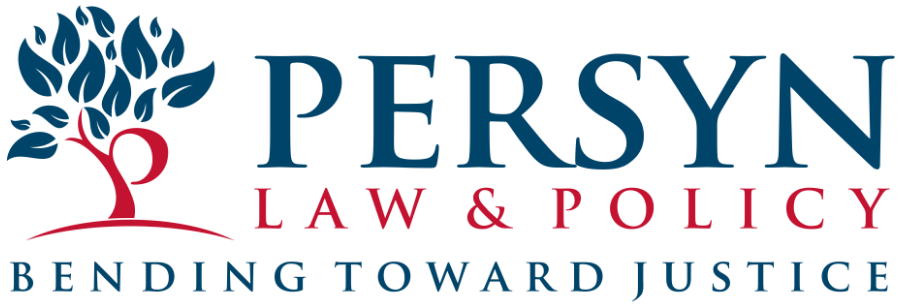Persyn Law & Policy represents the American Professional Society on the Abuse of Children ("APSAC") as amicus curiae in the U.S. Supreme Court in the case of Joseph H. v. California. This case, in which a petition for certiorari is pending, presents the question whether a ten-year-old boy has sufficient capacity to waive his Fifth Amendment rights to silence and counsel under the rule of Miranda v. Arizona and related cases. APSAC has a particular interest in this case because of the multiple forms of trauma that Joseph suffered since birth.
The California Court of Appeal decision is here. Prior San Francisco Chronicle coverage of the case is below.
Confession of boy, 10, raises doubts over grasp of Miranda rights
By Bob Egelko, San Francisco Chronicle
October 25, 2015
After decades of crime-fighting shows on TV, most Americans are probably familiar with the gist of the Miranda warning for suspects in police custody — you have the right to remain silent and to speak to an attorney, and anything you say can be used against you.
But is the warning adequate to protect the rights of very young suspects, such as an emotionally troubled 10-year-old?
The California Supreme Court has let stand the homicide conviction of a 10-year-old in Riverside who was told his rights by police and then confessed during questioning that he had fatally shot his neo-Nazi father. But dissenting justices said it’s time for the courts or the Legislature to set realistic age limits for the Miranda warning.
The U.S. Supreme Court, which required police to issue the warning in the 1966 case of Miranda vs. Arizona, has never decided whether minors below a certain age are competent to give up their Miranda rights and answer officers’ questions. But as state Supreme Court Justice Goodwin Liu noted in his Oct. 16 dissent, the nation’s high court has ruled that any decision to waive the right to remain silent must be made “voluntarily, knowingly and intelligently.”
The 10-year-old’s case, Liu said, raises an issue that “likely affects hundreds of children each year: whether, and if so, how the concept of a voluntary, knowing and intelligent Miranda waiver can be meaningfully applied to a child as young as 10.”
Justice’s unusual move
All three of Gov. Jerry Brown’s appointees — Liu, Mariano-Florentino Cuéllar and Leondra Kruger — voted to review the case, leaving them one short of the needed majority. Cuéllar also signed Liu’s dissenting opinion, an unusual and perhaps unprecedented statement by a California justice arguing that his colleagues should have taken up a case from the lower courts.
The issue arises in the wake of rulings by the nation’s high court barring executions or mandatory life-without-parole sentences for juveniles. In the 2005 death penalty ruling, Justice Anthony Kennedy said research has shown that juveniles, more commonly than adults, have a “lack of maturity and an underdeveloped sense of responsibility,” and are more susceptible to peer pressure than adults.
“The youthful brain is different than the adult brain,” said Rory Little, a law professor at UC Hastings in San Francisco. Noting that California law bars an accused rapist from arguing that his victim consented if she was younger than 14, Little said, “If a 14-year-old can’t consent to sex, how can a 10-year-old waive his rights to Miranda?”
The Riverside youth, identified as Joseph H., found his father’s gun and shot him in the head as he lay sleeping on a sofa in May 2011. The father was a leader of a neo-Nazi group called the National Socialist Movement and was also a drug addict who frequently beat Joseph, according to a state appeals court ruling in the case. When police arrived, the court said, Joseph told them his father had beaten him and his mother the day before.
Abused by both parents
The court said Joseph had been exposed to drugs in his mother’s womb, was abused by both parents, had below-average intelligence, suffered from attention-deficit hyperactivity disorder, and was prone to violent outbursts against fellow students and teachers.
Before questioning Joseph at the police station, a detective explained his Miranda rights, asking him at each stage whether he understood he didn’t have to talk to the detective and could speak to a lawyer instead. The boy answered yes to each question, in one word or short sentences, then agreed to talk and described the shooting.
A juvenile court judge upheld the interrogation and found Joseph responsible for the homicide — the equivalent of a second-degree murder conviction for an adult. He was given a 40-year sentence, but under state law will be freed when he turns 23. After reviewing a videotape of the questioning, the state’s Fourth District Court of Appeal upheld the ruling in June.
The video showed “he had no trouble communicating” to the detective, who asked follow-up questions to make sure the youth understood what he was doing, Presiding Justice Manuel Ramirez said in the 3-0 ruling. Despite his age and his mental and emotional problems, Ramirez said, the evidence shows that “Joseph voluntarily waived his rights.”
The state Supreme Court let the ruling stand Oct. 16 over a lengthy dissent by Liu, who said it was doubtful that Joseph, or any 10-year-old, would understand the rights he was giving up and the consequences. He said only one other court, a Florida appellate panel in 1991, had reached a similar conclusion for a 10-year-old, while courts and legislatures in several states have refused to allow interrogation of children younger than 13, 16 or 18 without a lawyer or parent present.
‘Made-for-adults standards’
Lawyers for Joseph H. could ask the U.S. Supreme Court to review his case and set a nationwide standard. Defense lawyer Nima Mohebbi said an appeal is being considered.
Liu’s dissent, Mohebbi said, accurately highlights “the problems with applying made-for-adults standards to minors.”
Bob Egelko is a San Francisco Chronicle staff writer. E-mail: begelko@sfchronicle.com Twitter: @egelko
